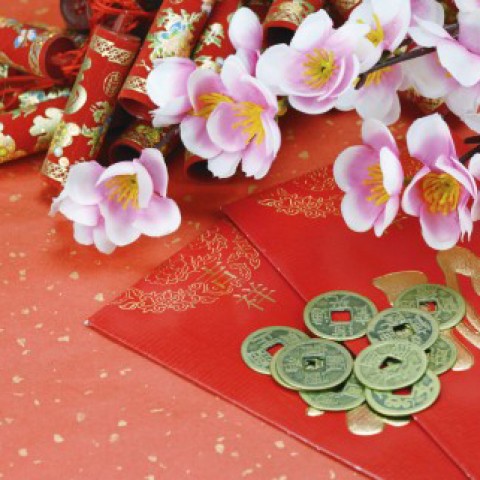Time is very important, and is a significant part of our daily lives. Thus, when learning any language, it’s essential to learn about dates and time in that language. In this case, knowing Thai dates and how to tell time in Thai will improve your Thai conversation. It will also enable you to make appointments and manage your time well while in Thailand.
This article will teach you how to write dates in Thai, how to say the months in Thai, and basic sentences you can use in conversations to talk about dates or make appointments. To sum up, after finishing this article, you’ll know everything about Thai dates, Thai days, Thai months, and Thai years. Some parts of this lesson may be hard, but others are very easy (especially if you have basic knowledge about Thai numbers!).
Table of Contents
- Saying the Day in Thai
- Dates in Thai
- The Months in Thai
- The Year in Thai
- Combining Thai Days, Dates, Months, and Years
- Other Terms You Should Know
- Must-Know Thai Phrases about Dates
- Making an Appointment in Thai
- Conclusion: How ThaiPod101 Can Help You Master Thai
1. Saying the Day in Thai
Let’s start with the basics. Before you can really understand dates in Thailand, you’ll have to know the days of the week in Thai. วัน (wan) is “day” in Thai, and below is a list of the Thai names for each day of the week.
1- “Monday” in Thai
Thai: วันจันทร์ (wan jan)
Example:
- วันจันทร์ที่จะถึงนี้เป็นวันหยุด
wan jan thîi jà thǔeng níi bpen wan yùt
This coming Monday is a holiday.
Additional Note: Thai people associate the days with different colors. For Monday, the color of the day is yellow. Since King Rama IX was born on Monday, yellow is considered his color as well.
2- “Tuesday” in Thai
Thai: วันอังคาร (wan ang-khaan)
Example:
- วันอังคารหน้าฉันจะไปเกาหลี
wan ang-khaan nâa chăn jà bpai gao-lǐi
I will go to Korea next Tuesday.
Additional Note: Tuesday’s color is pink.
3- “Wednesday” in Thai
Thai: วันพุธ (wan phút)
Example:
- ฉันชอบดูหนังวันพุธเพราะตั๋วหนังลดราคา
chăn châawp duu năng wan phút phráw dtŭua năng lót raa-khaa
I like to watch movies on Wednesday because tickets are discounted.
Additional Note: Wednesday’s color is green. In Thailand, a lot of restaurants and movie theaters have promotions on this day.
4- “Thursday” in Thai
Thai: วันพฤหัสบดี (wan phá-rúe-hàt-sà-baaw-dii)
Example:
- วันพฤหัสบดีนี้ฉันมีนัดกับลูกค้าใหม่
wan phá-rúe-hàt-sà-baaw-dii níi chăn mii nát gàp lûuk kháa mài
I have an appointment with a new customer this Thursday.
Additional Note: Thursday’s color is orange.
5- “Friday” in Thai
Thai: วันศุกร์ (wan sùk)
Example:
- วันศุกร์หน้าเป็นวันเกิดของแม่ฉัน
wan sùk nâa bpen wan gòoet khǎawng mâae chăn
Next Friday is my mother’s birthday.
Additional Note: Friday’s color is light blue.
6- “Saturday” in Thai
Thai: วันเสาร์ (wan sǎo)
Example:
- วันเสาร์นี้ฉันจะไปห้างกับพี่สาว
wan săo níi chăn jà bpai hâang gàp phîi săao
I will go to the department store with my older sister this Saturday.
Additional Note: Saturday’s color is purple.
7- “Sunday” in Thai
Thai: วันอาทิตย์ (wan aa-thít)
Example:
- วันอาทิตย์เป็นวันครอบครัวของเรา
wan aa-thít bpen wan khrâawp khruua khǎawng rao
Sunday is our family’s day.
Additional Note: Sunday’s color is red.
8- “Weekday” in Thai
Thai: วันธรรมดา (wan tham-má-daa)
Example:
- ปกติแล้ว วันธรรมดาฉันจะถึงบ้านตอน 5 โมงเย็น
bpòk-gà-dtì láaeo wan tham-má-daa chăn jà thǔeng bâan dtaawn hâa moong yen
Normally, I arrive home at 5 p.m. on weekdays.
9- “Weekend” in Thai
Thai: วันสุดสัปดาห์ (wan sùt-sàp-daa)
Example:
- ร้านอาหารของน้องชายฉันจะขายดีวันสุดสัปดาห์เป็นพิเศษ
ráan aa-hăan khǎawng náawng chaai chăn jà khăai dii wan sùt sàp-daa bpen phí-sìit
My younger brother’s restaurant is always packed on the weekend.
As you can see, the days in Thai may require some extra practice due to the spelling. But you can do this! Knowing the days of the week is essential in mastering Thai dates, so don’t skip over this!
2. Dates in Thai
On the other hand, Thai dates are very easy to learn if you know how to count 1-31 in the Thai language. วันที่ (wan thîi) is “date” in Thai. Basically, to say dates in Thai, you just say วันที่ (wan thîi) + number (date). The list below shows how to read all the number dates in Thai.
- วันที่ 1 (wan thîi nùeng) is “1st” in Thai
- วันที่ 2 (wan thîi sǎawng) is “2nd” in Thai
- วันที่ 3 (wan thîi sǎam) is “3rd” in Thai
- วันที่ 4 (wan thîi sìi) is “4th” in Thai
- วันที่ 5 (wan thîi hǎa) is “5th” in Thai
- วันที่ 6 (wan thîi hòk) is “6th” in Thai
- วันที่ 7 (wan thîi jèt) is “7th” in Thai
- วันที่ 8 (wan thîi bpàaet) is “8th” in Thai
- วันที่ 9 (wan thîi gâo) is “9th” in Thai
- วันที่ 10 (wan thîi sìp) is “10th” in Thai
- วันที่ 11 (wan thîi sìp-èt) is “11th” in Thai
- วันที่ 12 (wan thîi sìp sǎawng) is “12th” in Thai
- วันที่ 13 (wan thîi sìp sǎam) is “13th” in Thai
- วันที่ 14 (wan thîi sìp sìi) is “14th” in Thai
- วันที่ 15 (wan thîi sìp hâa) is “15th” in Thai
- วันที่ 16 (wan thîi sìp hòk) is “16th” in Thai
- วันที่ 17 (wan thîi sìp jèt) is “17th” in Thai
- วันที่ 18 (wan thîi sìp bpàaet) is “18th” in Thai
- วันที่ 19 (wan thîi sìp gâo) is “19th” in Thai
- วันที่ 20 (wan thîi yîi sìp) is “20th” in Thai
- วันที่ 21 (wan thîi yîi sìp èt) is “21st” in Thai
- วันที่ 22 (wan thîi yîi sìp sǎawng) is “22nd” in Thai
- วันที่ 23 (wan thîi yîi sìp sǎam) is “23rd” in Thai
- วันที่ 24 (wan thîi yîi sìp sìi) is “24th” in Thai
- วันที่ 25 (wan thîi yîi sìp hâa) is “25th” in Thai
- วันที่ 26 (wan thîi yîi sìp hòk) is “26th” in Thai
- วันที่ 27 (wan thîi yîi sìp jèt) is “27th” in Thai
- วันที่ 28 (wan thîi yîi sìp bpàaet) is “28th” in Thai
- วันที่ 29 (wan thîi yîi sìp gâo) is “29th” in Thai
- วันที่ 30 (wan thîi sǎam sìp) is “30th” in Thai
- วันที่ 31 (wan thîi sǎam sìp èt) is “31st” in Thai
3. The Months in Thai
Now that you know what the days in Thai are, let’s learn how to say “month” in Thai and what each month is called. เดือน (duuean) is “month” in Thai, and the list below shows the month names.
1- “January” in Thai
Thai:
- Formal language: เดือนมกราคม (duuean mók-gà-raa-khom)
- Informal spoken language: เดือนหนึ่ง (duuean nùeng)
Abbreviation: ม.ค. (maaw-khaaw)
Example:
- ฉันเกิดเดือนมกราคม
chǎn gòoet duuean mók-gà-raa-khom
I was born in January.
Additional Note: Apart from New Year, another important day in Thailand is Children’s Day, which is the second Saturday of January.
2- “February” in Thai
Thai:
- Formal language: เดือนกุมภาพันธ์ (duuean gum-phaa-phan)
- Informal spoken language: เดือนสอง (duuean sǎawng)
Abbreviation: ก.พ. (gaaw-phaaw)
Example:
- เดือนกุมภาพันธ์เป็นเดือนแห่งความรัก
duuean gum-phaa-phan bpen duuean hàaeng khwaam-rák
February is the month of love.
Additional Note: February in Thailand is full of red. Apart from being the month of love, the Chinese New Year falls in this month almost every year. Most places are decorated with red, a color that represents both Valentine’s Day and the Chinese New Year.
3- “March” in Thai
Thai:
- Formal language: เดือนมีนาคม (duuean mii-naa-khom)
- Informal spoken language: เดือนสาม (duuean sǎam)
Abbreviation: มี.ค. (mii-khaaw)
Example:
- ประเทศไทยเริ่มเข้าสู่ฤดูร้อนตั้งแต่เดือนมีนาคม
bprà-thêet thai rôoem khâo sùu rúe-duu ráawn dtâng dtàae duuean mii-naa-khom
The summer in Thailand starts in March.
Additional Note: Thai students love March as it’s the start of their summer vacation. March in Thailand is also the starting period of summer. The weather clearly starts to get hotter.
4- “April” in Thai
Thai:
- Formal language: เดือนเมษายน (duuean mee-sǎa-yon)
- Informal spoken language: เดือนสี่ (duuean sìi)
Abbreviation: เม.ย. (mee-yaaw)
Example:
- เดือนเมษายนมีเทศกาลสงกรานต์ซึ่งเป็นวันหยุดยาวของประเทศไทย
duuean mee-săa-yon mii thêet-sà-gaan sŏng-graan sûeng bpen wan yùt yaao khǎawng bprà-thêet thai
The sǎawnggran Festival, which is a long Thai holiday, is in April.
Additional Note: As mentioned in the example, the Sŏng-graan Festival or Thai New Year period, is from April 13-15, and this is the hottest period of the year. It’s a long holiday for Thai people, who normally spend their time with family either going back to their hometown or going traveling. So April in Thailand is a time for family.
5- “May” in Thai
Thai:
- Formal language: เดือนพฤษภาคม (duuean phrúet-sà-phaa-khom)
- Informal spoken language: เดือนห้า (duuean hâa)
Abbreviation: พ.ค. (phaaw-khaaw)
Example:
- นักเรียนไทยเริ่มเปิดเทอมเดือนพฤษภาคม
nák riian thai rôoem bpòoet thooem duuean phrúet-sà-phaa-khom
Thai students start a new semester in May.
Additional Note: The middle of May in Thailand is the start of the rainy season.
6- “June” in Thai
Thai:
- Formal language: เดือนมิถุนายน (duuean mí-thù-naa-yon)
- Informal spoken language: เดือนหก (duuean hòk)
Abbreviation: มิ.ย. (mí-yaaw)
Example:
- ชื่อของเดือนที่มี 30 วันจะลงท้ายด้วยคำว่า “ยน” ในภาษาไทย เช่น เดือนมิถุนายน
- chûue khǎawng duuean thîi mii săam sìp wan jà long tháai dûuai kham wâa yon nai phaa-săa thai chêen duuean mí-thù-naa-yon
- The name of a month that has thirty days ends with yoen in Thai, such as เดือนมิถุนายน (duuean mí-thù-naa-yon).
7- “July” in Thai
Thai:
- Formal language: เดือนกรกฎาคม (duuean gà-rá-gà-daa-khom)
- Informal spoken language: เดือนเจ็ด (duuean jèt)
Abbreviation: ก.ค. (gaaw-khaaw)
Example:
- ชื่อของเดือนที่มี 31 วันจะลงท้ายด้วยคำว่า “คม” ในภาษาไทย เช่น เดือนกรกฎาคม
- chûue khǎawng duuean thîi mii săam sìp èt wan jà long tháai dûuai kham wâa khom nai phaa-săa thai chêen duuean gà-rá-gà-daa-khom
- The name of a month that has thirty-one days ends with khom in Thai, such as เดือนกรกฎาคม (duuean gà-rá-gà-daa-khom).
8- “August” in Thai
Thai:
- Formal language: เดือนสิงหาคม (duuean sǐng-hǎa-khom)
- Informal spoken language: เดือนแปด (duuean bpàaet)
Abbreviation: ส.ค. (sǎaw-khaaw)
Example:
- วันที่ 12 สิงหาคมของทุกปีเป็นวันแม่ของประเทศไทย
wan thîi sìp sǎawng sĭng-hăa-khom khǎawng thúk bpii bpen wan mâae khǎawng bprà-thêet thai
The 12th of August every year is Mother’s Day in Thailand.
Additional Note: August in Thailand is full of events for mothers. The 12th of August is the birthday of King Rama IX’s wife. Thai people perceive her as the mother of Thai people, so naturally, her birthday has become Mother’s Day in Thailand.
9- “September” in Thai
Thai:
- Formal language: เดือนกันยายน (duuean gan-yaa-yon)
- Informal spoken language: เดือนเก้า (duuean gâo)
Abbreviation: ก.ย. (gaaw-yaaw)
Example:
- เดือนกันยายนปีนี้ ฉันจะไปเที่ยวญี่ปุ่น
duuean gan-yaa-yon bpii níi chăn jà bpai thîiao yîi-bpùn
I will go traveling in Japan this September.
Additional Note: The 9th of September in Thailand is considered to be a good day, as both the date and the month are pronounced gâo which means “moving forward” in Thai.
10- “October” in Thai
Thai:
- Formal language: เดือนตุลาคม (duuean dtù-laa-khom)
- Informal spoken language: เดือนสิบ (duuean-sìp)
Abbreviation: ต.ค. (dtaaw-khaaw)
Example:
- เทศกาลกินเจของไทยอยู่เดือนตุลาคม
thêet-sà-gaan gin jee khǎawng thai yùu duuean dtù-laa-khom
The Vegetarian Festival in Thailand is in October.
Additional Note: If February in Thailand is full of red, October in Thailand is full of yellow because of the ten-day Vegetarian Festival. During this period, some Thai people eat only vegetarian food for ten days in order to make merit by saving the lives of animals.
11- “November” in Thai
Thai:
- Formal language: เดือนพฤศจิกายน (duuean phrúet-sà-jì-gaa-yon)
- Informal spoken language: เดือนสิบเอ็ด (duuean sìp èt)
Abbreviation: พ.ย. (phaaw-yaaw)
Example:
- วันลอยกระทงของทุกปีมักอยู่เดือนพฤศจิกายน
wan laauy grà-thong khǎawng thúk bpii mák yùu duuean phrúet-sà-jì-gaa-yon
Loy Gratong Day is in November almost every year.
Additional Note: The date on which Loy Gratong Day falls each year is based on the Thai Lunar calendar. It’s the day that Thai people ask พระแม่คงคา (phrá mâae khong-khaa) or the “god of river” for forgiveness if they do something wrong toward the river. This ceremony is quite nice and unique, so foreigners often find it beautiful.
12- “December” in Thai
Thai:
- Formal language: เดือนธันวาคม (duuean than-waa-khom)
- Informal spoken language: เดือนสิบสอง (duuean sìp sǎawng)
Abbreviation: ธ.ค. (thaaw-khaaw)
Example:
- หลายคนชอบเดือนธันวาคมเพราะเดือนนี้มีวันหยุดหลายวัน
lăai khon châawp duuean than-waa khom phráw duuean níi mii wan yùt lăai wan
Many people like December because there are many holidays in this month.
Additional Note: December in Thailand is a month full of holidays. The fact that the weather in Thailand starts to cool down makes the atmosphere nicer. A lot of Thai people travel during this period.
4. The Year in Thai
Learning the years in Thai isn’t difficult. ปี (bpii) is “year” in Thai.
There are a few things you need to know about Thai years, which will be explained below to give you a better idea of how to read dates in Thai according to the year.
1- Ph.D. or B.E.
Thai people mainly use Ph.D., but they also understand if you use B.E. However, when it comes to formal communication in both speaking and writing, Ph.D. is used.
2- How to Say Thai Years (Ph.D.)
Thai: พุทธศักราช (phút-thá-sàk-gà-ràat) + year
Abbreviation: พ.ศ. (phaaw-sǎaw)
Example:
- ปีนี้คือพ.ศ.2562
bpii níi khuue phaaw-sǎaw sǎawng-phan-hâa-ráauy-hòk-sìp-sǎawng
This year is 2562 Ph.d.
Additional Note: พุทธศักราช (phút-thá-sàk-gà-ràat) is normally used in formal situations, while พ.ศ. (phaaw-sǎaw) can be used in both formal and informal situations.
3- How to Say Thai Years (B.E.)
Thai: คริสตศักราช (khrít-dtà-sàk-gà-ràat) + year
Abbreviation: ค.ศ. (khaaw-sǎaw)
Example:
- ปีนี้คือค.ศ.2019
bpii níi khuue khaaw-sǎaw sǎawng-phan-sìp-gâo
This year is 2019 B.E.
Additional Note: คริสตศักราช (khrít-dtà-sàk-gà-ràat) is normally used in formal spoken situations, while ค.ศ. (khaaw-sǎaw) can be used in informal spoken situations and formal written situations.
5. Combining Thai Days, Dates, Months, and Years
So, how are dates written in Thailand?
Let’s combine everything together that you’ve learned so far, and use it to see how to write dates in Thai. Keep in mind that Thai people start with the smallest unit. Below is an example of how Thai people say the day, date, month, and year altogether:
วัน (day) ที่ (date) เดือน (month) ปี (year)
wan (day) thîi (date) duuean (month) bpii (year)
Now, here are various ways you can say Thai days, dates, months and years, using the structures above. The date that will be used as an example is Tuesday 8th, January 2019.
1- Full Version
Thai date: วันอังคารที่ 8 เดือนมกราคม ปีพ.ศ. 2562
Thai pronunciation: wan-ang-khaan thîi bpàaet duuean mók-gà-raa-khom bpii phút-thá-sàk-gà-ràat sǎawng-phan-hâa-ráauy-hòk-sìp-sǎawng
Usage: Thai people normally use this in formal situations. You simply say every part of the phrase.
2- Thai Date without Day
Thai date: วันที่ 8 เดือนมกราคม ปีพ.ศ. 2562
Thai pronunciation: wan thîi bpàaet duuean mók-gà-raa-khom bpii phút-thá-sàk-gà-ràat sǎawng-phan-hâa-ráauy-hòk-sìp-sǎawng
Usage: Thai people also use this in formal situations, when they don’t want to focus on the day. If you can say the full version, this is easy. You just cut the day out.
3- Short Version
Thai date: 8 มกราคม พ.ศ. 2562
Thai pronunciation: bpàaet mók-gà-raa-khom phaaw-sǎaw sǎawng-phan-hâa-ráauy-hòk-sìp-sǎawng
Usage: Thai people use this in less formal situations. They simply cut out the day, the word date, the month, and the year. For the year, the abbreviation is used. This is what Thai people use for speaking in daily life.
4- Abbreviated Version
Thai date: 8 ม.ค. 62
Thai pronunciation: bpàaet maaw-khaaw hòk-sǎawng
Usage: Thai people mostly use abbreviated versions for writing. When they read it, they either read it fully or read the abbreviation as shown above. For years, Thai people read each number separately.
6. Other Terms You Should Know
Apart from what you’ve learned so far, there are also terms about dates and times you should know:
1- “Today” in Thai
Thai language: วันนี้ (wan-níi)
Example:
- วันนี้เป็นวันอาทิตย์
Wan-níi bpen wan-aa-thít
Today is Sunday.
2- “Tomorrow” in Thai
Thai language: วันพรุ่งนี้ (wan-phrûng-níi); พรุ่งนี้ (phrûng-níi)
Example:
- พรุ่งนี้ฝนน่าจะตก
Phrûng-níi fǒn nâa jà dtòk
It may rain tomorrow.
Additional Note: วันพรุ่งนี้ (wan-phrûng-níi) is a little bit more formal than พรุ่งนี้ (phrûng-níi). Still, Thai people use both of them equally.
3- “The Day After Tomorrow” in Thai
Thai language: วันมะรืน (wan-má-ruuen); มะรืน (má-ruuen)
Example:
- พ่อต้องไปเชียงใหม่มะรืนนี้
Phâaw dtâawng bpai chiiang-mài má-ruuen níi
Dad has to go to Chiangmai the day after tomorrow.
Additional Note: วันมะรืน (wan-má-ruuen) is a little bit more formal than มะรืน (má-ruuen). Still, Thai people use both of them equally. They often put the word นี้ (níi) after วันมะรืน (wan-má-ruuen) or มะรืน (má-ruuen), but its English meaning is the same.
4- “Yesterday” in Thai
Thai language: เมื่อวาน (mûuea-waan)
Example:
- เมื่อวานนี้อากาศร้อนมาก
Mûuea-waan níi aa-gàat ráawn mâak
Yesterday was very hot.
Additional Note: Thai people often put the word นี้ (níi) after เมื่อวาน (mûuea-waan), but its English meaning is the same.
5- “Week” in Thai
Thai language: สัปดาห์ (sàp-daa); อาทิตย์ (aa-thít)
Example:
- อาทิตย์ที่แล้ว ฉันไปเที่ยวมา
Aa-thít thîi-láaeo chǎn bpai thîiao maa
I went traveling last week.
Additional Note: สัปดาห์ (sàp-daa) is more formal than อาทิตย์ (aa-thít). Thai people use อาทิตย์ (aa-thít) in conversation more.
6- “This…..” in Thai
Thai language: (name of day / เดือน / ปี) + นี้ (níi)
Example:
- วันพฤหัสบดีนี้เป็นวันครู
Wan-phá-rúe-hàt-sà-baaw-dii níi bpen wan khruu
This Thursday is Teacher Day.
Additional Note: In Thailand, Teacher Day is on January 16.
6- “Next…..” in Thai
Thai language: (name of day / เดือน / ปี) + หน้า (nhâa)
Example:
- เดือนหน้าอากาศจะเริ่มร้อนแล้ว
Duuean nâa aa-gàat jà rôoem ráawn láaeo
The weather will start to be hot next month.
6- “Last…..” in Thai
Thai language: (name of day / เดือน / ปี) + ที่แล้ว (thîi-láaeo)
Example:
- ปีที่แล้วเป็นปีที่ดีของฉัน
Bpii thîi-láaeo bpen bpii thîi dii khǎawng chǎn
Last year was a good year for me.
7. Must-Know Thai Phrases about Dates
Even after learning everything else in this article, you may still find it a bit hard to start a conversation about dates. To help you out, we’ve prepared some sentences you can use.
Thai language: วันนี้วันอะไร
Thai pronunciation: wan-níi wan à-rai
English meaning: What day is today?
Thai language: เดือนนี้เดือนอะไร
Thai pronunciation: duuean níi duuean à-rai
English meaning: What month is this?
Thai language: ปีนี้ปีอะไร
Thai pronunciation: bpii níi bpii à-rai
English meaning: What year is this?
Thai language: วันเกิดคุณคือวันไหน
Thai pronunciation: wan-gòoet khun khuue wan nǎi
English meaning: When is your birthday?
Thai language: วันครบรอบแต่งงานคือวันไหน
Thai pronunciation: wan-khróp-râawp dtàaeng-ngaan khuue wan nǎi
English meaning: When is your wedding anniversary?
Thai language: โรงเรียนเปิดเทอมวันไหน
Thai pronunciation: roong-riian bpòoet-thooem wan nǎi
English meaning: When does your school start?
8. Making an Appointment in Thai
Now, for the last section of this article, let’s learn sentences you can use to make an appointment.
Thai language: คุณว่าง (day / date) มั๊ย
Thai pronunciation: khun wâang …..mái
English meaning: Are you free on (day/date)?
Thai language: ว่าง
Thai pronunciation: wâang
English meaning: I’m free.
Thai language: ไม่ว่าง
Thai pronunciation: mâi wâang
English meaning: I’m not free.
Thai language: แล้ว (day / date) ล่ะ
Thai pronunciation: láaeo…..là
English meaning: What about (day / date)?
Thai language: เจอกัน (day / date) นะ
Thai pronunciation: jooe gan…..ná
English meaning: See you on (day / date).
9. Conclusion: How ThaiPod101 Can Help You Master Thai
There’s a lot to learn and remember when it comes to Thai dates, so be sure to practice often. Remembering the names of days and months will definitely take some time, but you can do it, so don’t give up. If you can, try using them with Thai people in daily life.
Once you get the hang of this, you can go and learn other interesting lessons such as our vocabulary list on Thai numbers or about the Thai New Year at ThaiPod101.com!
Before you go, let us know in the comments how you feel about Thai dates now. Do you feel more confident about writing and reading dates in Thai, or are you still struggling? Don’t forget to keep practicing and never hesitate to reach out for help. We look forward to hearing from you!


















